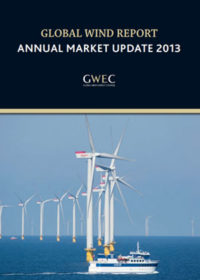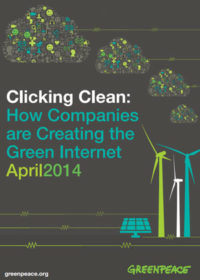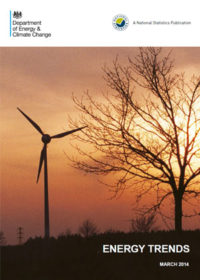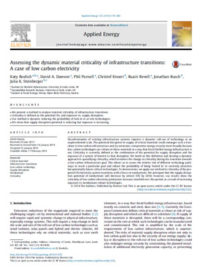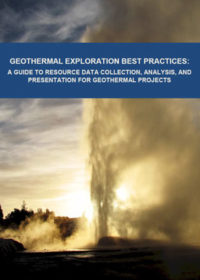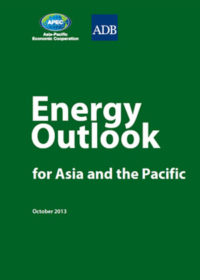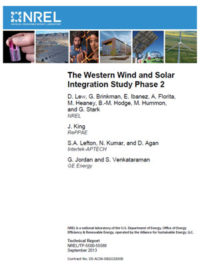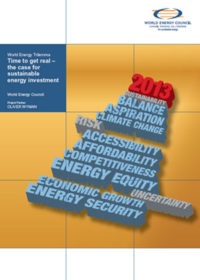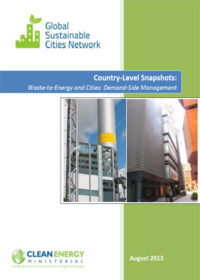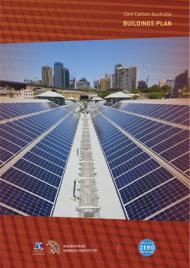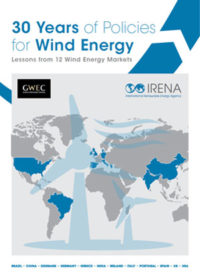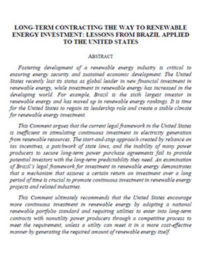Resources
Publications
Our publications, reports and research library hosts over 500 specialist reports and research papers on all topics associated with CCS.
View our Publication Library Disclaimer.
Filter by
This is the ninth annual report on the status of the global wind industry by the Global Wind Energy Council. It provides a comprehensive overview of the global industry at a moment in time; an industry now present in more than 80 countries, 24 of which have more than 1,000 MW installed. The information contained in the report - market data, profiles and analysis have been collected primarily through GWEC’s member associations around the world, as well as from governments and independent analysts.
Disclaimer
The content within the Global CCS Institute Publications, Reports and Research Library is provided for information purposes only. We make every effort and take reasonable care to keep the content of this section up-to-date and error-free. However, we make no claim as to its accuracy, currency or reliability.
Content and material featured within this section of our website includes reports and research published by third parties. The content and material may include opinions and recommendations of third parties that do not reflect those held by the Global CCS Institute.
Clicking clean: how companies are creating the green internet
1st April 2014
Topic(s): Energy efficiency, Public engagement, Renewables
The report is an update of Greenpeace’s How Clean is Your Cloud? from 2012. This update examines 19 global information technology companies that are leading the sector’s move to the cloud. These companies, while less well-known than branded giants like Google or Amazon, operate the data centers behind much of the Internet.
Disclaimer
The content within the Global CCS Institute Publications, Reports and Research Library is provided for information purposes only. We make every effort and take reasonable care to keep the content of this section up-to-date and error-free. However, we make no claim as to its accuracy, currency or reliability.
Content and material featured within this section of our website includes reports and research published by third parties. The content and material may include opinions and recommendations of third parties that do not reflect those held by the Global CCS Institute.
The United Kingdom’s Department of Energy and Climate Change’s (DECC) Energy Trends includes statistical information on energy as a whole and by individual fuels, presented chiefly in charts and tables. This edition covers the fourth quarter of 2013, and also 2013 as a whole - providing a comprehensive picture of energy production and use in the UK.
The main decarbonisation points for 2013:
- Low carbon electricity’s share of generation increased from 31 per cent in 2012 to 35 per cent in 2013, due to higher renewables and nuclear generation.
- Of electricity generated in 2013, coal accounted for 36 per cent (a fall of 3 percentage points on 2012) and gas 27 per cent (a fall of 1 percentage point on 2012), gas’ lowest share since 1996, due to high gas prices. Nuclear’s share increased by less than 1 percentage point on 2012 to 20 per cent of the total. Renewables’ share of generation increased by 4 percentage points on 2012 to a record 15 per cent.
- Renewable electricity generation was 52.8 TWh in 2013, an increase of 28 per cent on the 41.3 TWh in 2012, with wind generation up 40 per cent. Renewable electricity capacity was 19.4 GW at the end of 2013, a 25 per cent increase (3.9 GW) on a year earlier.
- Provisional estimates show that carbon dioxide emissions fell between 2012 and 2013; the key factor driving the change was a switch in electricity generation away from fossil fuels.
Disclaimer
The content within the Global CCS Institute Publications, Reports and Research Library is provided for information purposes only. We make every effort and take reasonable care to keep the content of this section up-to-date and error-free. However, we make no claim as to its accuracy, currency or reliability.
Content and material featured within this section of our website includes reports and research published by third parties. The content and material may include opinions and recommendations of third parties that do not reflect those held by the Global CCS Institute.
Assessing the dynamic material criticality of infrastructure transitions: a case of low carbon electricity
17th February 2014
Topic(s): Engineering and project delivery, Renewables
Decarbonisation of existing infrastructure systems requires a dynamic roll-out of technology at an unprecedented scale. The potential disruption in supply of critical materials could endanger such a transition to low-carbon infrastructure and, by extension, compromise energy security more broadly because low carbon technologies are reliant on these materials in a way that fossil-fuelled energy infrastructure is not.
This paper, authored by K. Roelich et al., was originally published in Applied Energy.
Disclaimer
The content within the Global CCS Institute Publications, Reports and Research Library is provided for information purposes only. We make every effort and take reasonable care to keep the content of this section up-to-date and error-free. However, we make no claim as to its accuracy, currency or reliability.
Content and material featured within this section of our website includes reports and research published by third parties. The content and material may include opinions and recommendations of third parties that do not reflect those held by the Global CCS Institute.
Geothermal exploration best practices: a guide to resource data collection, analysis, and presentation for geothermal projects
1st February 2014
Topic(s): Geothermal energy, Project financing, Renewables
Exploration best practices for any natural resource commodity should aim to reduce the resource risk prior to significant capital investment, for a fraction of the cost of the planned investment. For geothermal energy, the high risks cost of proving the resource is one of the key barriers facing the industry. This guide lays out best practices for geothermal exploration to assist geothermal developers and their contractors to address these risks in a cost-sensitive manner, raising project quality. Companies that can demonstrate that their project has followed such best practices will find it easier to access finance. In the same way, this guide will be of use to financers of geothermal projects, assisting the assessment of projects to ensure project risks have been addressed.
Disclaimer
The content within the Global CCS Institute Publications, Reports and Research Library is provided for information purposes only. We make every effort and take reasonable care to keep the content of this section up-to-date and error-free. However, we make no claim as to its accuracy, currency or reliability.
Content and material featured within this section of our website includes reports and research published by third parties. The content and material may include opinions and recommendations of third parties that do not reflect those held by the Global CCS Institute.
Energy outlook for Asia and the Pacific
1st October 2013
Topic(s): Energy efficiency, Policy law and regulation, Renewables
This 2013 edition of the Asian Development Bank’s Energy Outlook for Asia and the Pacific projects through to 2035, forecasting policy, social, infrastructure and technology issues that must be addresses to meet future energy needs of the region.
The authors estimate increased CO2 emissions in a business as usual scenario where they project that the demand for coal, oil and gas will rise.
They present an alternative case to consider the future energy savings potential as well as CO2 emissions reduction potential in Asia and the Pacific through the deployment of advanced technologies for energy savings and a shift toward low-carbon technologies.
Disclaimer
The content within the Global CCS Institute Publications, Reports and Research Library is provided for information purposes only. We make every effort and take reasonable care to keep the content of this section up-to-date and error-free. However, we make no claim as to its accuracy, currency or reliability.
Content and material featured within this section of our website includes reports and research published by third parties. The content and material may include opinions and recommendations of third parties that do not reflect those held by the Global CCS Institute.
The western wind and solar integration study phase 2
1st September 2013
Topic(s): Economics, Engineering and project delivery, Renewables
This report describes the findings of a National Renewable Energy Laboratory study into the costs and emissions impacts of the addition of solar and wind power to a predominately fossil-fuelled electricity grid. The study found that the impact of 33% wind and solar penetration on system operations is to increase cycling costs but also to displace annual fuel costs by approximately $7 billion. The study also found that up to 33% wind and solar energy penetration in the United States’ portion of the Western grid avoids 29%–34% carbon dioxide (CO2) emissions throughout the western grid.
Disclaimer
The content within the Global CCS Institute Publications, Reports and Research Library is provided for information purposes only. We make every effort and take reasonable care to keep the content of this section up-to-date and error-free. However, we make no claim as to its accuracy, currency or reliability.
Content and material featured within this section of our website includes reports and research published by third parties. The content and material may include opinions and recommendations of third parties that do not reflect those held by the Global CCS Institute.
World energy trilemma 2013. Time to get real: the case for sustainable energy investment
1st September 2013
Topic(s): Economics, Renewables
This report is the fifth edition of our World Energy Trilemma series. The 2013 report describes what public sector stakeholders believe they need from the energy industry. It is based on interviews with more than 50 energy and environmental ministers, policymakers, government officials, representatives from multilateral development banks, international non-governmental organisations, and experts from more than 25 countries.
Disclaimer
The content within the Global CCS Institute Publications, Reports and Research Library is provided for information purposes only. We make every effort and take reasonable care to keep the content of this section up-to-date and error-free. However, we make no claim as to its accuracy, currency or reliability.
Content and material featured within this section of our website includes reports and research published by third parties. The content and material may include opinions and recommendations of third parties that do not reflect those held by the Global CCS Institute.
Country-level snapshots: waste-to-energy and cities: demand-side management
1st August 2013
Topic(s): Energy efficiency, Renewables
The Global Sustainable Cities Network (GSCN) is an initiative of the Clean Energy Ministerial, a high-level global forum to promote policies and programs that advance clean energy technology, to share lessons learned and best practices, and to encourage the transition to a global clean energy economy. The aim of the GSCN is to provide an open platform for groundbreaking sustainable city initiatives throughout the world to share knowledge that can be utilized and incorporated throughout the initiatives’ respective development life cycles.
Participant countries have produced the following country-level snapshots to summarize their activities, challenges, and successes in the areas of waste-to-energy and demand-side management in cities. Including commercial-scale projects, pilot studies, pipeline inventories, national market size and investment estimates, R&D status, best practices and policy mechanisms as well as identified areas of greatest interest to their respective constituents.
Disclaimer
The content within the Global CCS Institute Publications, Reports and Research Library is provided for information purposes only. We make every effort and take reasonable care to keep the content of this section up-to-date and error-free. However, we make no claim as to its accuracy, currency or reliability.
Content and material featured within this section of our website includes reports and research published by third parties. The content and material may include opinions and recommendations of third parties that do not reflect those held by the Global CCS Institute.
The Zero Carbon Australia Buildings Plan is the first comprehensive, nationwide plan to retrofit Australia’s buildings. This plan demonstrates how all existing buildings can reach zero emissions from their operation within ten years. It sets out how Australia can transform its building stock to reduce energy bills, generate renewable energy, add health and comfort to our living spaces, and make our workplaces more productive.
Disclaimer
The content within the Global CCS Institute Publications, Reports and Research Library is provided for information purposes only. We make every effort and take reasonable care to keep the content of this section up-to-date and error-free. However, we make no claim as to its accuracy, currency or reliability.
Content and material featured within this section of our website includes reports and research published by third parties. The content and material may include opinions and recommendations of third parties that do not reflect those held by the Global CCS Institute.
30 years of policies for wind energy: lessons from 12 wind energy markets
22nd July 2013
Topic(s): Policy law and regulation, Renewables, Wind energy
The aim of this report is to provide an insight into the strengths of diverse policy design decisions across important existing markets. This report identifies and reviews significant policy and regulatory measures that have contributed to the successful development of wind energy across major markets in Asia, Europe, North and South America over the last three decades.
Disclaimer
The content within the Global CCS Institute Publications, Reports and Research Library is provided for information purposes only. We make every effort and take reasonable care to keep the content of this section up-to-date and error-free. However, we make no claim as to its accuracy, currency or reliability.
Content and material featured within this section of our website includes reports and research published by third parties. The content and material may include opinions and recommendations of third parties that do not reflect those held by the Global CCS Institute.
Long-term contracting the way to renewable energy investment: lessons from Brazil applied to the United States
11th July 2013
Topic(s): Project financing, Renewables
This comment from Emory Law Journal argues that the current legal framework in the United States is inefficient in stimulating continuous investment in electricity generation from renewable resources. The start-and-stop approach created by reliance on tax incentives, a patchwork of state laws, and the inability of many power producers to secure long-term power purchase agreements fail to provide potential investors with the long-term predictability they need. An examination of Brazil’s legal framework for investment in renewable energy demonstrates that a mechanism that assures a certain return on investment over a long period of time is crucial to promote continuous investment in renewable energy projects and related industries.
Disclaimer
The content within the Global CCS Institute Publications, Reports and Research Library is provided for information purposes only. We make every effort and take reasonable care to keep the content of this section up-to-date and error-free. However, we make no claim as to its accuracy, currency or reliability.
Content and material featured within this section of our website includes reports and research published by third parties. The content and material may include opinions and recommendations of third parties that do not reflect those held by the Global CCS Institute.
